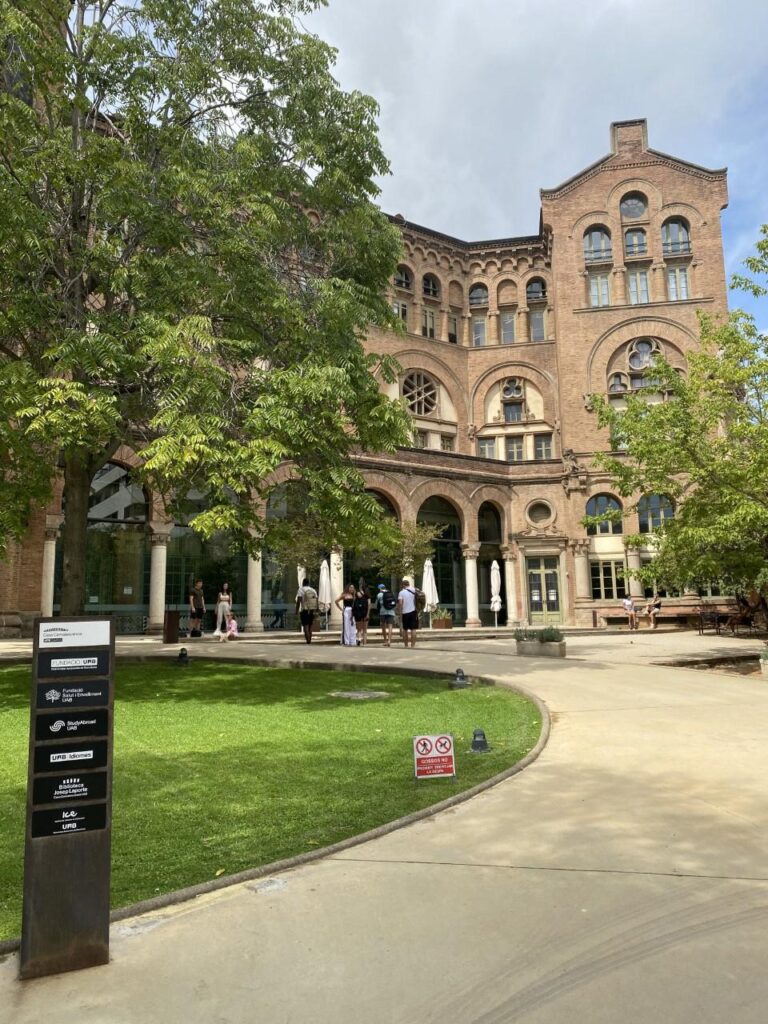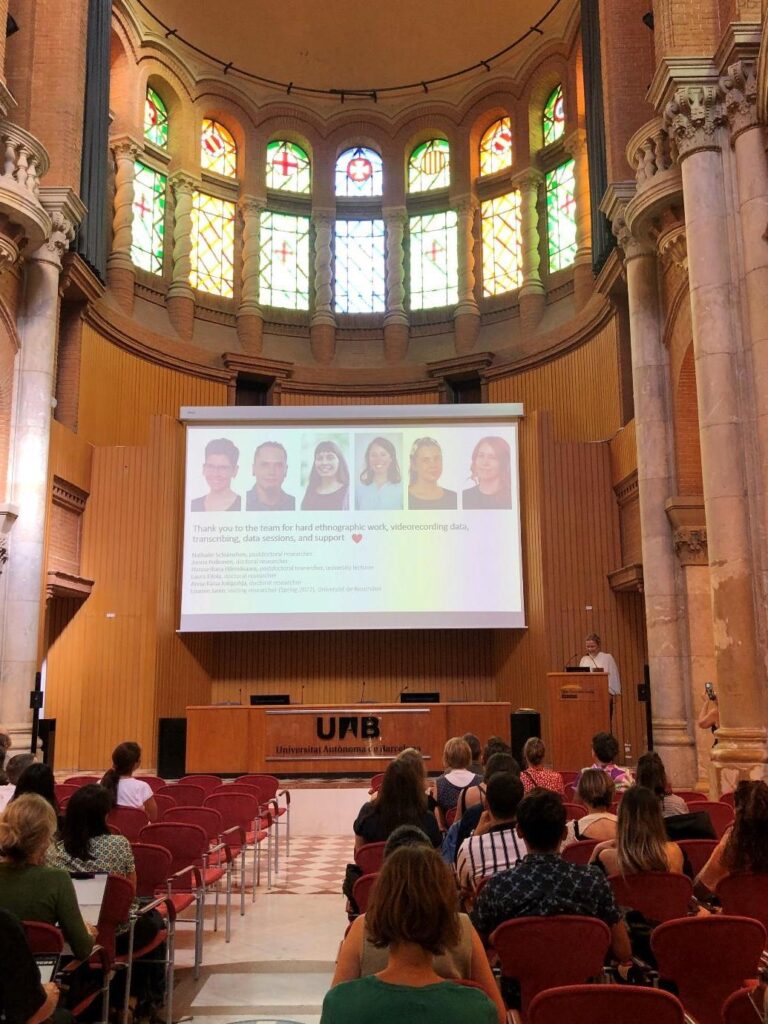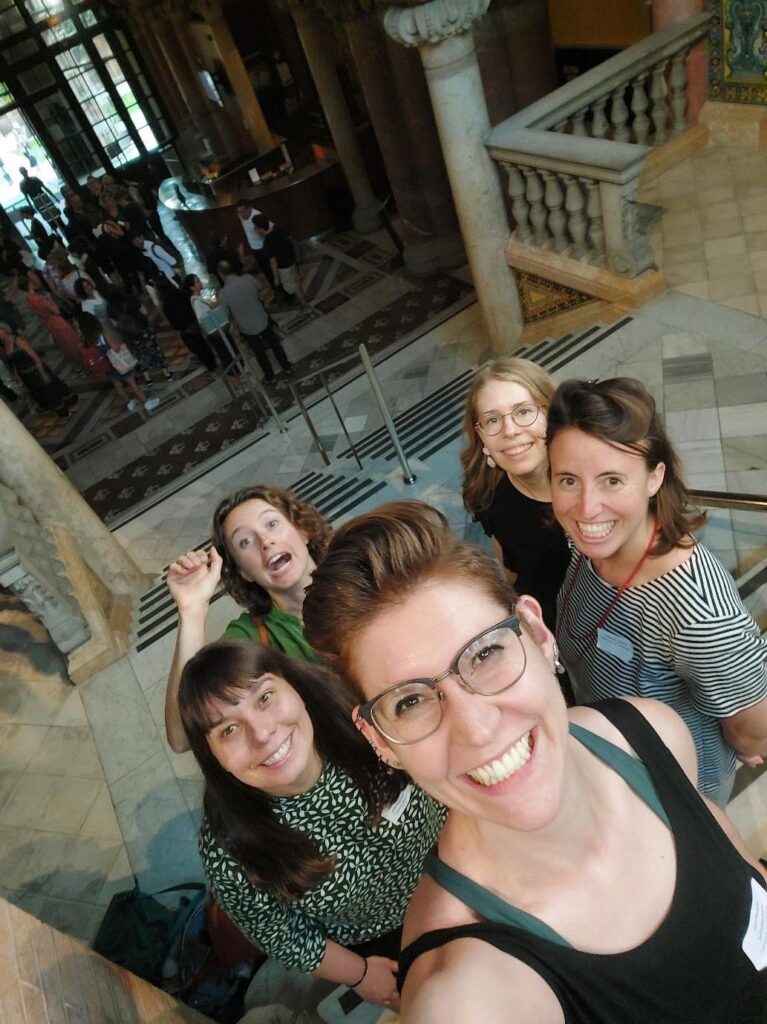Hanna-Ilona Härmävaara
Anna-Kaisa Jokipohja
Nathalie Schümchen
Tampere University, Finland
ICOP-L2 stands for “interactional competences and practices in a second language”, and the conference of the same name is all about socially situated language use and second language development. The third iteration of ICOP-L2, which took place in Barcelona in the beginning of September 2022, was a welcome opportunity to finally get together with a lot of like-minded people, after a long pandemic-related break.
ICOP-L2 brings together researchers who are interested in understanding how L2 speakers accomplish social actions – and which linguistic, embodied, and material resources they use in their sense-making practices. The conference showcases variation of L2 practices across interactional contexts, such as in technology-mediated interaction, in work and leisure contexts and in classrooms. Participating researchers use methods such as conversation analysis, ethnography, membership categorization analysis, and usage-based linguistics, to investigate both learning processes and learning products.
For two full days, Casa de Convalescència in the heart of Barcelona hosted researchers from all over the world. The variety of language contexts under investigation ranged from Japanese over English to Finnish, and even though we were often dependent on presenters’ glossing and translation of their data, when it came to the general mindset and understanding of language learning and teaching, we all spoke the same language.

Abundant learning opportunities
The conference felt exceptionally friendly toward young researchers, offering pre-conference workshops on assessment of interactional competence and embodiment, as well as easy opportunities to network, typical for small-scale conferences. Also, the specialized focus on SLA from the perspective of interactional competence enabled uncomplicated and goal-oriented discussions about shared challenges, new ideas for solutions, and approaches to learning and teaching. Discussions went directly to the heart of the matter, both during Q&As after the presentations and during coffee breaks.
The conference was structured around versatile ways of learning in different interactional contexts. The keynotes reflected the spectrum and provided the conference participants an overview of current CA-SLA research – even surprising the audience with new perspectives on interactional competence. Tom Koole provoked thought by presenting studies that suggest that students show a higher degree of language proficiency when they interact with their peers than with the teacher. Tim Greer presented data from language learning “in the wild” contexts and showed how co-participation can support developing and expanding interactional competence. Niina Lilja’s talk dealt with instructions for manual actions in the contexts of construction work and cooking classes in L2, and focused on the interplay between language, body, and physical environment.

Combining practical and theoretical
The pre-conference workshops nicely complemented the general experience by offering the conference participants more hands-on knowledge on interactional competences. Spencer Hazel’s workshop on multimodality guided the participants to reflect on their data from an embodied point of view, to better understand the restrictions of presenting and analyzing video data in a written form. Enacting gestures and body movements is very different from describing them verbally!
Daniel Lam’s workshop gave tools for getting a better grip of the slippery topic of assessing interactional competence. The practical nature of the workshop allowed the participants to put on both the hats of a language assessor and a researcher. The workshop also raised the important question of how to apply knowledge gathered in CA research on interactional competence to developing language assessment tests.
Would we recommend – heck yes!
For a researcher interested in CA-SLA, it is a good idea to add the ICOP-L2 conference to the conference calendar. Discussions go right to the point, as most participants share an understanding of the methodology and the overall mindset. At the same time, participating in a conference with such like-minded researchers reminded us of the importance of interacting with researchers with different but complementary approaches and attending conferences with a broader focus – just to learn from different perspectives and to be challenged from different angles.

